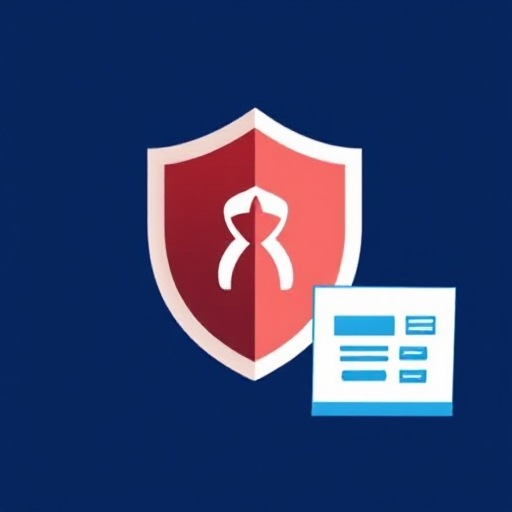
The rapid growth of cloud computing has transformed how businesses and organizations operate. As more companies migrate their operations to the cloud, the demand for skilled cloud engineers continues to rise. Cloud engineers design, implement, and manage cloud infrastructure and services, ensuring that organizations can securely and efficiently scale their operations in a cloud environment. If you’re interested in pursuing a career as a cloud engineer, this article will outline the necessary steps to get started in this exciting and dynamic field.
1. Understand What a Cloud Engineer Does
Before embarking on the path to becoming a cloud engineer, it’s important to have a clear understanding of what the role entails. Cloud engineers are responsible for:
- Designing Cloud Infrastructure: Creating scalable and resilient cloud-based systems.
- Implementing Cloud Solutions: Setting up and configuring cloud platforms such as AWS, Microsoft Azure, or Google Cloud.
- Managing Cloud Services: Overseeing the deployment, monitoring, and maintenance of cloud applications and services.
- Ensuring Security and Compliance: Ensuring that cloud systems adhere to security protocols and comply with relevant regulations.
- Troubleshooting: Identifying and resolving issues that arise in cloud environments.
Cloud engineers typically specialize in areas such as cloud architecture, cloud security, or cloud operations. A solid foundation in these areas will be essential throughout your career.
2. Get a Strong Educational Foundation
A solid educational background is crucial in becoming a cloud engineer. While it’s possible to enter the field through self-study and certifications, most cloud engineers have a degree in a relevant field such as:
- Computer Science
- Information Technology
- Software Engineering
- Networking
- Systems Engineering
A degree in one of these areas will provide you with a deep understanding of computer systems, networking, and software, which are fundamental to working in the cloud space.
3. Learn Core IT Concepts and Technologies
Before diving into the specifics of cloud computing, it’s essential to have a solid grasp of key IT concepts. These include:
- Networking: Understanding how data travels over networks, including protocols, DNS, IP addressing, and VPNs.
- Operating Systems: Familiarity with Linux and Windows servers, as cloud environments often involve working with virtual machines and instances.
- Virtualization: Knowing how virtual machines work and how virtualization helps create scalable cloud environments.
- Databases: Understanding both SQL and NoSQL databases, which are commonly used in cloud services for data storage and retrieval.
- Scripting and Automation: Cloud engineers often automate tasks, so knowledge of scripting languages (such as Python, Bash, or PowerShell) is highly valuable.
A strong understanding of these concepts will lay the foundation for more advanced cloud computing topics.
4. Gain Practical Experience with Cloud Platforms
The next step in your journey to becoming a cloud engineer is to gain hands-on experience with popular cloud platforms. The three major cloud service providers (CSPs) are:
- Amazon Web Services (AWS): The most widely used cloud platform, offering services in computing, storage, networking, and databases.
- Microsoft Azure: A leading cloud platform with a focus on hybrid cloud solutions and enterprise integration.
- Google Cloud Platform (GCP): Known for its machine learning, big data, and open-source software support.
To start building experience, create accounts on these platforms (many offer free tiers or credits for beginners) and begin experimenting with services like virtual machines, storage solutions, and databases. Understanding the differences and similarities between these platforms will enhance your versatility as a cloud engineer.
5. Obtain Cloud Certifications
Cloud certifications are a critical step in validating your skills and knowledge in the field. While not always required, certifications from major cloud providers can significantly boost your employability and help you stand out in the job market. Some popular certifications include:
- AWS Certified Solutions Architect – Associate: Validates your ability to design and implement cloud solutions using AWS.
- Microsoft Certified: Azure Fundamentals: Provides foundational knowledge of Azure services and cloud concepts.
- Google Cloud Professional Cloud Architect: Focuses on designing, developing, and managing cloud architecture on GCP.
- Certified Kubernetes Administrator (CKA): A certification for cloud engineers focusing on container orchestration using Kubernetes.
These certifications not only demonstrate your expertise but also provide you with hands-on knowledge of cloud technologies that are essential for the role.
6. Build Practical Cloud Projects
To further solidify your skills, consider building cloud projects that demonstrate your abilities. You can work on projects like:
- Creating a Scalable Web Application: Develop and deploy a cloud-based web app using a platform like AWS, Azure, or GCP.
- Setting Up a Cloud Network: Build a virtual private cloud (VPC) with secure networking configurations.
- Automating Deployments with CI/CD Pipelines: Set up continuous integration and delivery pipelines for automatic application deployment.
- Migrating On-Premise Applications to the Cloud: Take a legacy application and move it to the cloud while optimizing it for scalability and cost-efficiency.
Having a portfolio of completed projects will help potential employers see your real-world capabilities and your ability to tackle cloud challenges.
7. Focus on Cloud Security
Security is a critical aspect of cloud computing, and cloud engineers must ensure that cloud infrastructures are secure from data breaches and cyberattacks. Some key security practices to learn include:
- Identity and Access Management (IAM): Understanding how to control user access to cloud resources and applying least privilege principles.
- Data Encryption: Implementing encryption for data at rest and in transit to protect sensitive information.
- Compliance and Regulatory Standards: Familiarity with standards like GDPR, HIPAA, and SOC 2 that affect cloud operations and security.
By specializing in cloud security or adding security knowledge to your skill set, you can increase your marketability as a cloud engineer.
8. Stay Updated with Cloud Technologies
The cloud computing landscape evolves rapidly. New services, features, and best practices are introduced regularly by cloud providers. As a cloud engineer, it’s crucial to stay up-to-date with the latest trends and developments in the field. You can do this by:
- Attending Cloud Events and Conferences: Many cloud providers host events and conferences to showcase their new offerings, such as AWS re:Invent, Microsoft Ignite, or Google Cloud Next.
- Joining Cloud Communities and Forums: Engage in online communities like Stack Overflow, Reddit, or LinkedIn groups to learn from other cloud professionals.
- Taking Online Courses: Platforms like Coursera, Udemy, and Pluralsight offer courses on the latest cloud technologies and best practices.
By continuously learning, you can ensure that your skills remain relevant and that you can leverage the latest cloud tools and solutions.
9. Apply for Cloud Engineering Jobs
Once you have the necessary skills, certifications, and experience, it’s time to start applying for cloud engineering roles. Common job titles for cloud engineers include:
- Cloud Solutions Architect
- Cloud Infrastructure Engineer
- Cloud Security Engineer
- Cloud DevOps Engineer
In your job applications, highlight your practical experience with cloud platforms, your certifications, and any relevant projects you’ve worked on. Networking through online communities and attending industry events can also help you land job opportunities.
Becoming a cloud engineer is a rewarding journey that involves continuous learning and adapting to new technologies. By gaining a strong educational foundation, mastering core IT concepts, obtaining cloud certifications, and building hands-on experience with cloud platforms, you can carve a successful career in this rapidly growing field. With the right skills, determination, and ongoing learning, you’ll be well-equipped to thrive as a cloud engineer.






